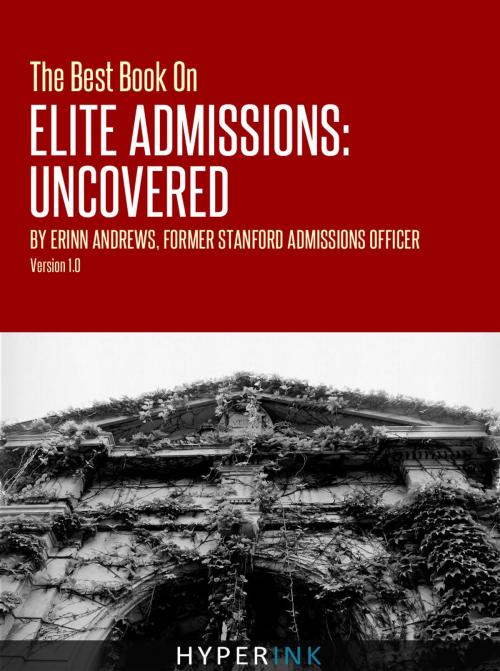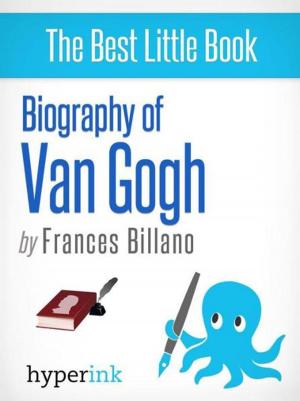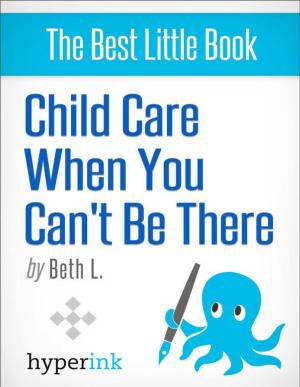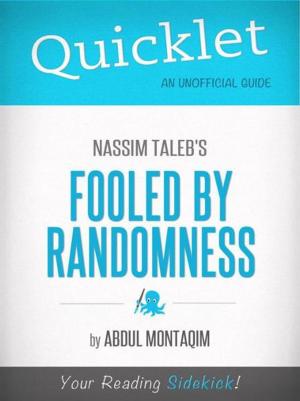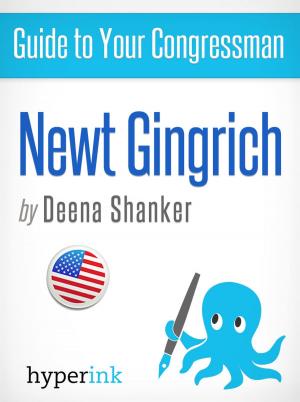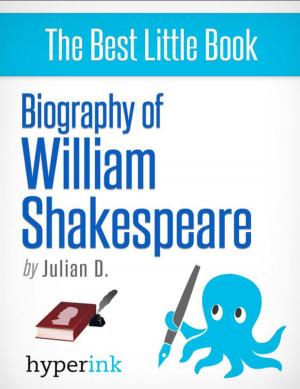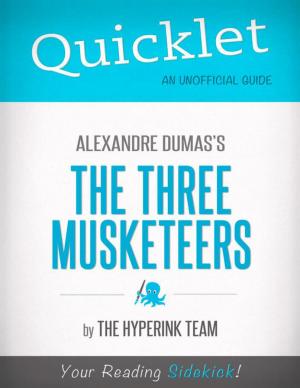The Best Book On Elite Admissions (Former Stanford Admissions Officer's Plan For Select College Admissions): The Only Book on Elite College Admissions Written by a Former Stanford Admissions Officer
Nonfiction, Reference & Language, Study Aids, College & University, College Entrance, Education & Teaching, Reference| Author: | Erinn Andrews | ISBN: | 9781614645474 |
| Publisher: | Hyperink | Publication: | November 17, 2011 |
| Imprint: | Hyperink - College Admissions Guide | Language: | English |
| Author: | Erinn Andrews |
| ISBN: | 9781614645474 |
| Publisher: | Hyperink |
| Publication: | November 17, 2011 |
| Imprint: | Hyperink - College Admissions Guide |
| Language: | English |
ABOUT THE BOOK
Applying to college is likely the most stressful and important moment in a teenager's academic life. Pressure from friends, family, teachers, and oneself add up to make this an overwhelming process to go through, especially for students applying to the nation's most selective schools.
One major reason for this stress is the uncertainty of the application process. Often, the students who apply to top schools are used to feeling in control of their lives and planning their future, but because there are no sure admittances in elite admissions, the feeling of helplessness can be overwhelming.
There are a number of resources available to students who wish to maximize their chances of admission; however, I, as a former admission officer at a selective university, feel that many are misleading. In some cases, the advice given is very specific to one school which isn't useful for the majority of students or it's too vague. And in some other cases, students try to compare their statistics with the statistics of other seemingly similar students to gauge their chances of admission, perhaps the worst resource of all.
MEET THE AUTHOR
Erinn Andrews is the former Assistant Director of Undergraduate Admissions at Stanford University. She read and evaluated thousands of applications from the US, as well as more than 70 countries around the world, and through that, she has developed a unique perspective on what it takes to get into the nation's elite colleges. She completed an M.A. in Education at Stanford University's School of Education in the Policy, Organization, and Leadership Studies Program. She also earned a B.A. in History with Honors at Stanford. She now works with students to help them uncover their intellectual and personal interests and present the best version of themselves in the elite admissions process.
EXCERPT FROM THE BOOK
The purpose of the application in selective admissions is to understand the context from which the applicant is coming. In order to decide which students to admit when admit rates are so low (<10%), admission officers must understand everything about an applicant so they can admit the mix of students the school is hoping to recruit. This means learning about the student’s family background, neighborhood, school, city, state, and more.
Once the context has been established, then the admission officer tries to find out if the student has taken advantage of the opportunities available to him and has either: a.) made a lasting impact in his community in some way, or b.) has the potential to make a lasting impact in his future community (college and beyond).
Despite popular belief, every application is actually read in its entirety by an admission officer in the selective admissions process.
ABOUT THE BOOK
Applying to college is likely the most stressful and important moment in a teenager's academic life. Pressure from friends, family, teachers, and oneself add up to make this an overwhelming process to go through, especially for students applying to the nation's most selective schools.
One major reason for this stress is the uncertainty of the application process. Often, the students who apply to top schools are used to feeling in control of their lives and planning their future, but because there are no sure admittances in elite admissions, the feeling of helplessness can be overwhelming.
There are a number of resources available to students who wish to maximize their chances of admission; however, I, as a former admission officer at a selective university, feel that many are misleading. In some cases, the advice given is very specific to one school which isn't useful for the majority of students or it's too vague. And in some other cases, students try to compare their statistics with the statistics of other seemingly similar students to gauge their chances of admission, perhaps the worst resource of all.
MEET THE AUTHOR
Erinn Andrews is the former Assistant Director of Undergraduate Admissions at Stanford University. She read and evaluated thousands of applications from the US, as well as more than 70 countries around the world, and through that, she has developed a unique perspective on what it takes to get into the nation's elite colleges. She completed an M.A. in Education at Stanford University's School of Education in the Policy, Organization, and Leadership Studies Program. She also earned a B.A. in History with Honors at Stanford. She now works with students to help them uncover their intellectual and personal interests and present the best version of themselves in the elite admissions process.
EXCERPT FROM THE BOOK
The purpose of the application in selective admissions is to understand the context from which the applicant is coming. In order to decide which students to admit when admit rates are so low (<10%), admission officers must understand everything about an applicant so they can admit the mix of students the school is hoping to recruit. This means learning about the student’s family background, neighborhood, school, city, state, and more.
Once the context has been established, then the admission officer tries to find out if the student has taken advantage of the opportunities available to him and has either: a.) made a lasting impact in his community in some way, or b.) has the potential to make a lasting impact in his future community (college and beyond).
Despite popular belief, every application is actually read in its entirety by an admission officer in the selective admissions process.
